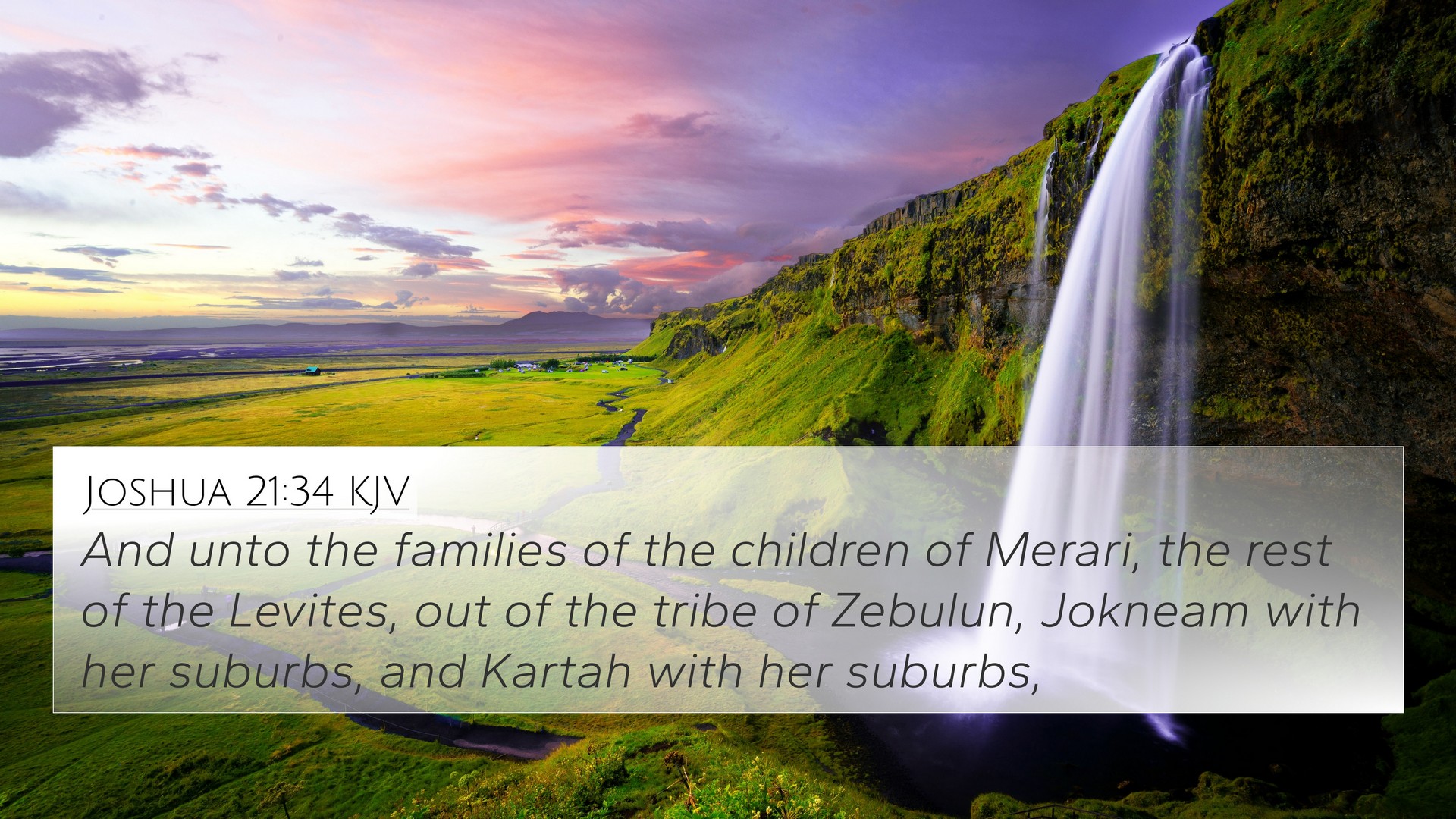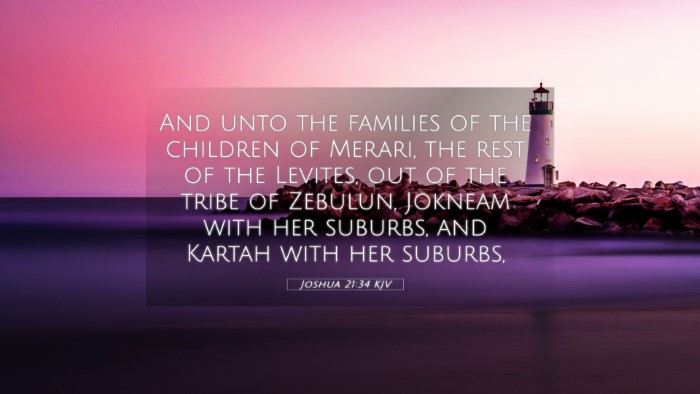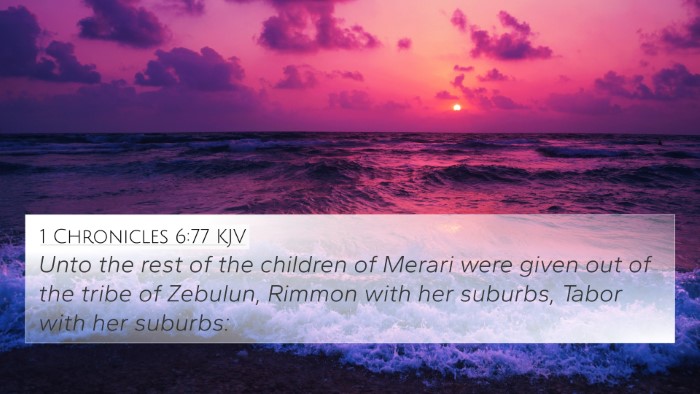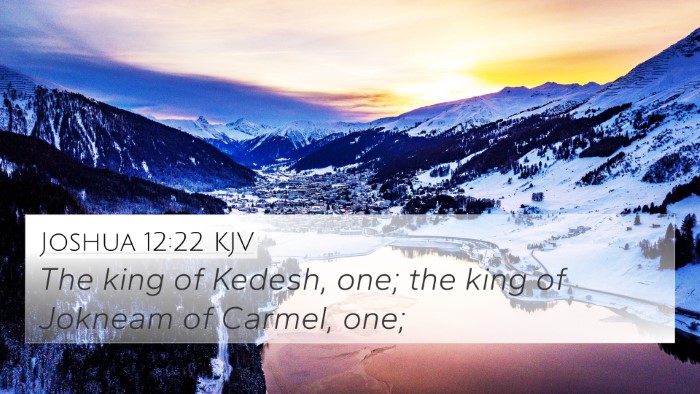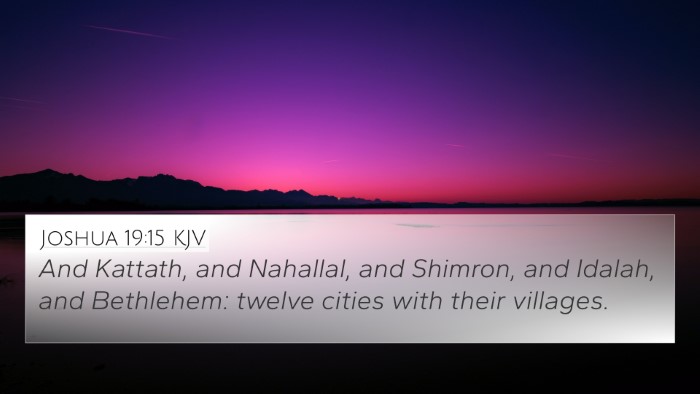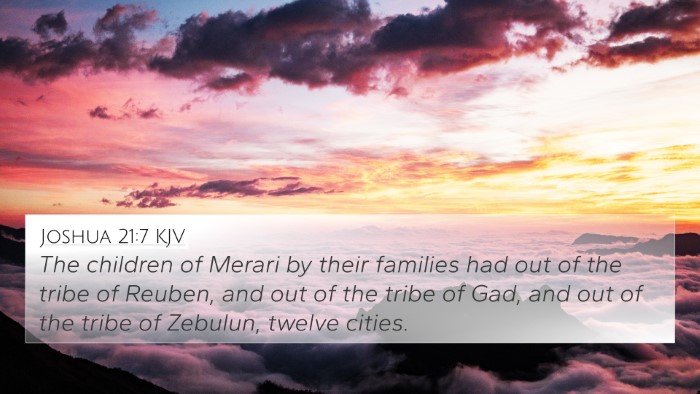Understanding Joshua 21:34
Joshua 21:34 states, "And to the children of Merari, the rest of the Levites, which were of the tribe of Levi, they gave by lot twelve cities." This verse encapsulates the distribution of cities among the Levites, which was an important aspect of their inheritance in the Promised Land.
Summary of the Verse
The verse highlights the allocation of cities to the Levitical clan of Merari, illustrating God's provision and the importance of the Levitical priesthood. The act of giving these cities by lot signifies a divine decision-making process, ensuring that each tribe received its fair share according to God's will. This provision reflects God's faithfulness to the Levites, who were set apart for His service.
Commentary Insights
-
Matthew Henry:
Henry emphasizes the Levites' unique role among the Israelites, noting that they did not receive land like the other tribes. Instead, their cities served as sanctuaries for worship and spiritual leadership, fulfilling their duties as mediators between God and the people. This verse illustrates the richness of God's grace in providing for those dedicated to His service.
-
Albert Barnes:
Barnes discusses the significance of the cities given to Merari, the last of the Levitical clans to receive its cities. He notes that this reflects the order and fairness of God’s plan, underscoring the cooperation among the tribes of Israel in fulfilling God's covenant. The distribution reinforces God's promise to be with the Levites as they carry out their priestly functions.
-
Adam Clarke:
Clarke points out that the designation of twelve cities to Merari symbolizes completeness in God’s provision. He also notes the historical significance of these cities, as they served as religious hubs and safety for individuals seeking refuge. This reaffirms God's intention to maintain a holy community dedicated to worship and guidance.
Cross-References
This verse is interlinked with several other biblical verses, enhancing our understanding of its meaning through cross-referencing. Here are some key connections:
- Numbers 35:2-8: Discusses the allocation of cities of refuge to the Levites and underlines their unique role within Israel.
- Deuteronomy 18:1-5: Highlights the inheritance of the Levites and their responsibilities, emphasizing their role as priests.
- Joshua 14:4: Refers to the division of the land, showing the Levites didn't have a specific territory but did receive cities.
- Exodus 32:29: Discusses the setting apart of the Levites for God’s service, highlighting their essential role in Jewish worship.
- 1 Chronicles 6:63-81: Provides an extensive list of Levitical cities, connecting the tribes to their designated places within Israel.
- Hebrews 7:13-14: Discusses the priesthood arising from Judah, yet ties back to the Levitical lineage and the order of service.
- Nehemiah 11:20: Refers to the Levites dwelling in cities, reinforcing their ongoing importance within Israel’s community governance.
Thematic Connections
The fulfillment of God's promises in the establishment of Levitical cities showcases themes of faithfulness, divine order, and community. The strategic placement of these cities symbolizes a spiritual and practical provision for worship and guidance among the tribes.
Conclusion
Joshua 21:34 is a profound reminder of God's provisions and the responsibilities held by the Levites. By studying this verse and utilizing tools for Bible cross-referencing, believers can glean richer insights into the scriptures. Understanding the relationships between different verses enhances one's grasp of biblical themes and principles.
Further Study
As one studies the connections between Joshua 21:34 and the accompanying verses, it is beneficial to explore resources such as a Bible concordance or a cross-reference Bible study guide. Engaging with these materials helps elucidate how various scriptures interact and highlight overarching biblical themes.
